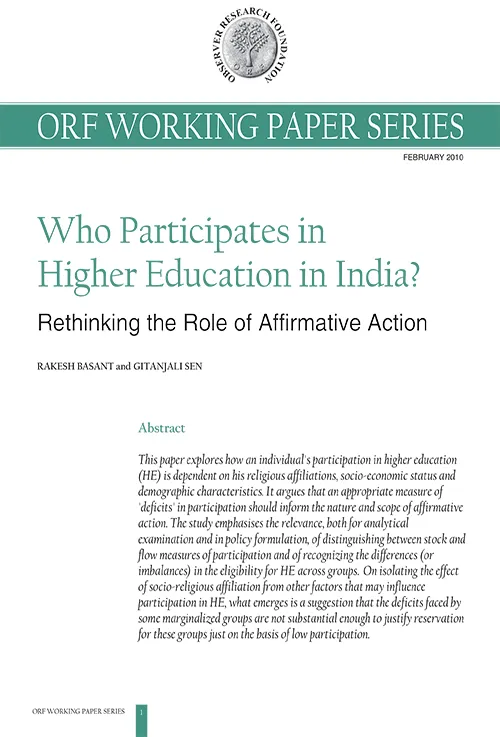This paper explores how an individual's participation in higher education (HE) is dependent on his religious affiliations, socio-economic status and demographic characteristics. It argues that an appropriate measure of 'deficits' in participation should inform the nature and scope of affirmative action. The study emphasises the relevance, both for analytical examination and in policy formulation, of distinguishing between stock and flow measures of participation and of recognizing the differences (or imbalances) in the eligibility for HE across groups. On isolating the effect of socio-religious affiliation from other factors that may influence participation in HE, what emerges is a suggestion that the deficits faced by some marginalized groups are not substantial enough to justify reservation for these groups just on the basis of low participation.
The views expressed above belong to the author(s). ORF research and analyses now available on Telegram! Click here to access our curated content — blogs, longforms and interviews.
